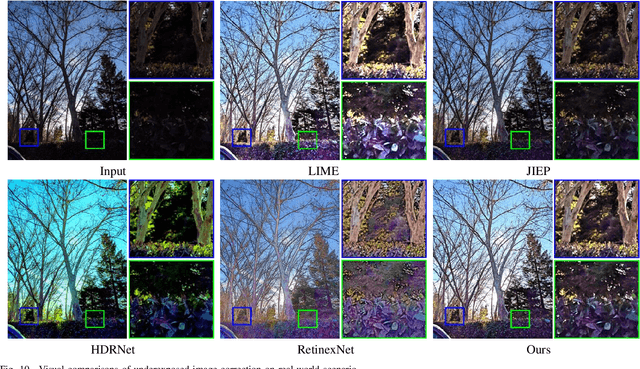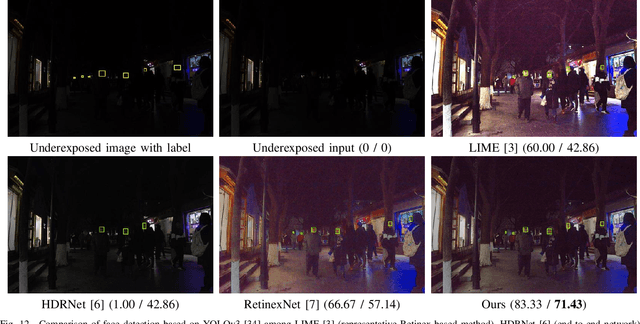Underexposed Image Correction via Hybrid Priors Navigated Deep Propagation
Paper and Code
Jul 17, 2019



Enhancing visual qualities for underexposed images is an extensively concerned task that plays important roles in various areas of multimedia and computer vision. Most existing methods often fail to generate high-quality results with appropriate luminance and abundant details. To address these issues, we in this work develop a novel framework, integrating both knowledge from physical principles and implicit distributions from data to solve the underexposed image correction task. More concretely, we propose a new perspective to formulate this task as an energy-inspired model with advanced hybrid priors. A propagation procedure navigated by the hybrid priors is well designed for simultaneously propagating the reflectance and illumination toward desired results. We conduct extensive experiments to verify the necessity of integrating both underlying principles (i.e., with knowledge) and distributions (i.e., from data) as navigated deep propagation. Plenty of experimental results of underexposed image correction demonstrate that our proposed method performs favorably against the state-of-the-art methods on both subjective and objective assessments. Additionally, we execute the task of face detection to further verify the naturalness and practical value of underexposed image correction. What's more, we employ our method to single image haze removal whose experimental results further demonstrate its superiorities.
 Add to Chrome
Add to Chrome Add to Firefox
Add to Firefox Add to Edge
Add to Edge